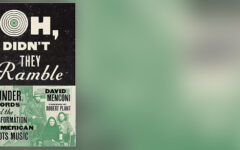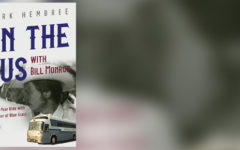
 There’s a school of thought that says you can’t teach songwriting. Folks can either write lyrics and compose interesting melodies, or they can’t.
There’s a school of thought that says you can’t teach songwriting. Folks can either write lyrics and compose interesting melodies, or they can’t.
But if the craft itself can’t be taught, those interested in pursuing it can gain some valuable perspective and timesaving advice by paying attention to those who have far more experience.
Much helpful advice can be found in Donna Ulisse’s recently published book, The Songwriter in Me, Snapshots of My Creative Process. The 138-page manual will be most helpful for beginners looking to raise the bar on their writing, but there’s enough meat on the bones here to be a worthwhile read for writers at all levels.
Ulisse is a prolific creator of songs, which you expect from someone who treats songwriting as a 9 to 5 job. And she has written with some of Nashville’s biggest names, though you won’t know that from reading her book. She made a conscious decision not to name drop, so co-writing tales good, bad and indifferent are told anonymously.
She writes each chapter the way she writes lyrics, in straightforward, everyday language. She even stresses the point: “I say things in a lyric the very same way I would say them talking to someone at my dinner table.”
She walks through some technical stuff – rhyme schemes, the etiquette of writing with others, when to copyright your work – but mixes the nuts and bolts with a narrative that’s part memoir and part “here’s how I did it.”
The most valuable contributions, at least to this songwriter, are generalizations that address two of the most common problems that confound songwriters. Where do you find ideas? And how do you write inventive melodies if you don’t know a lot of fancy guitar chords?
Donna has a couple of interesting ways to coax ideas from her mind to paper. One involves Scrabble tiles and free-writing. The other, which I admit I’m not in a big hurry to try on a daily basis, is washing the dishes by hand.
She writes: “The kitchen sink has conjured up many songs for me. The boring job of washing dishes works like a hypnotist has been swinging a watch in front of me…These times might find me resolving my feelings about something I might be upset over, where I can get the last word in even if no one is there to hear it. [Or] I might bust out laughing at something that has tickled me while staring out that window.”
Donna acknowledges the limits of her guitar playing. (And not just in the book. I’ve heard her fess up at writing workshops as well. As someone who shares that affliction, I’ve been following her advice for several years, and I’m glad to see it spelled out here for others to try).
Here’s her approach: “…Never limit yourself to your ability on your instrument. If you trip up over your own playing, if you are chord challenged like me or even if you don’t play at all, it’s just fine. You do not need an instrument when you can hum a melody. Hum the tune that is floating around inside your head into a recording device and let someone who does play an instrument figure out the chord structure after you’ve written your song.”
The other way to overcome melodic challenges, of course, is to write with a talented picker and composer. She does plenty of that, and devotes a chunk of the book to the ins and outs of co-writing.
But the most important pieces of advice in the book are easy to overlook, because Ulisse doesn’t dwell on them.
First is her most important rule for bluegrass songwriting: “There are no rules.” Don’t use clichés? She loves them. Lines don’t rhyme? So what?
The second is something writers at any level don’t like to think about: Get used to rejection. She writes, “The nice e-mail that I might receive saying ‘thanks but no thanks’ is not taken personally. Rejection is a major part of the music business and thin skin is a dangerous covering.”
The best songs don’t always get recorded and the best songwriters can go unnoticed. Or, as she cagily puts it: “There are many souls living and creating in Nashville who have more desire to be famous than actual talent, and there are loads of talented people who go overlooked.”
The book is published by her song publisher, the Hadley Music Group. List price is $19.95.







